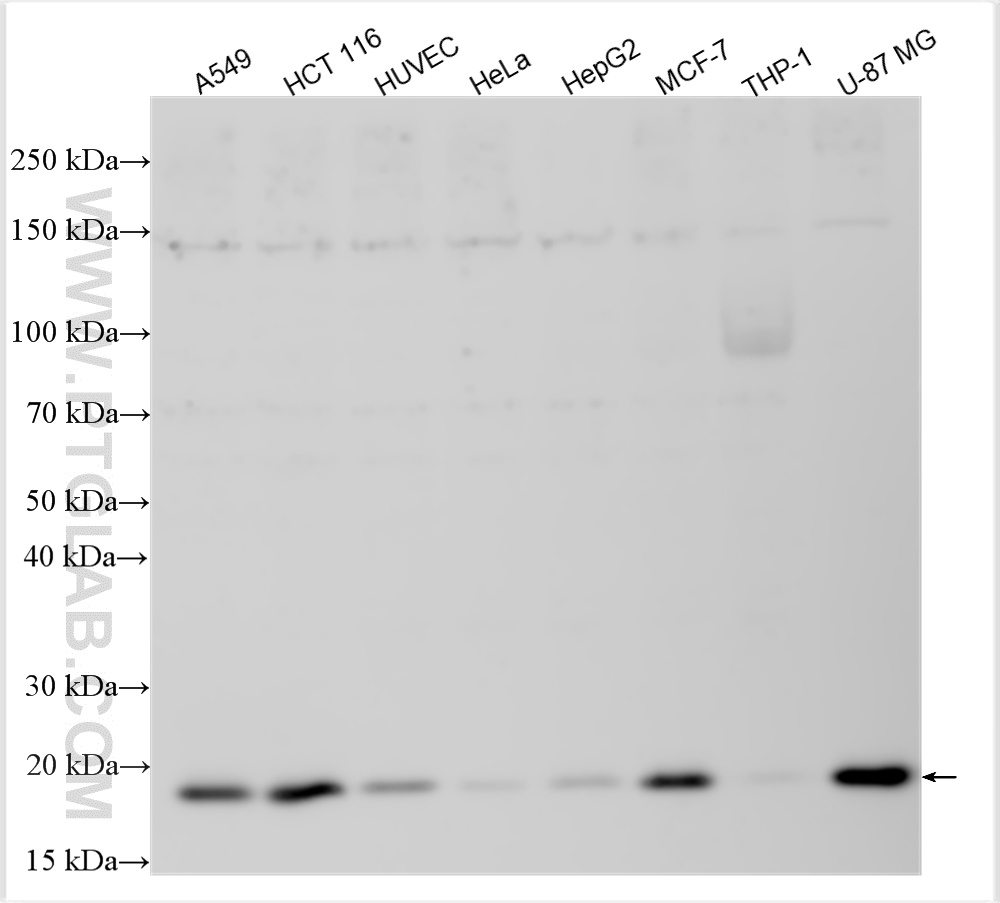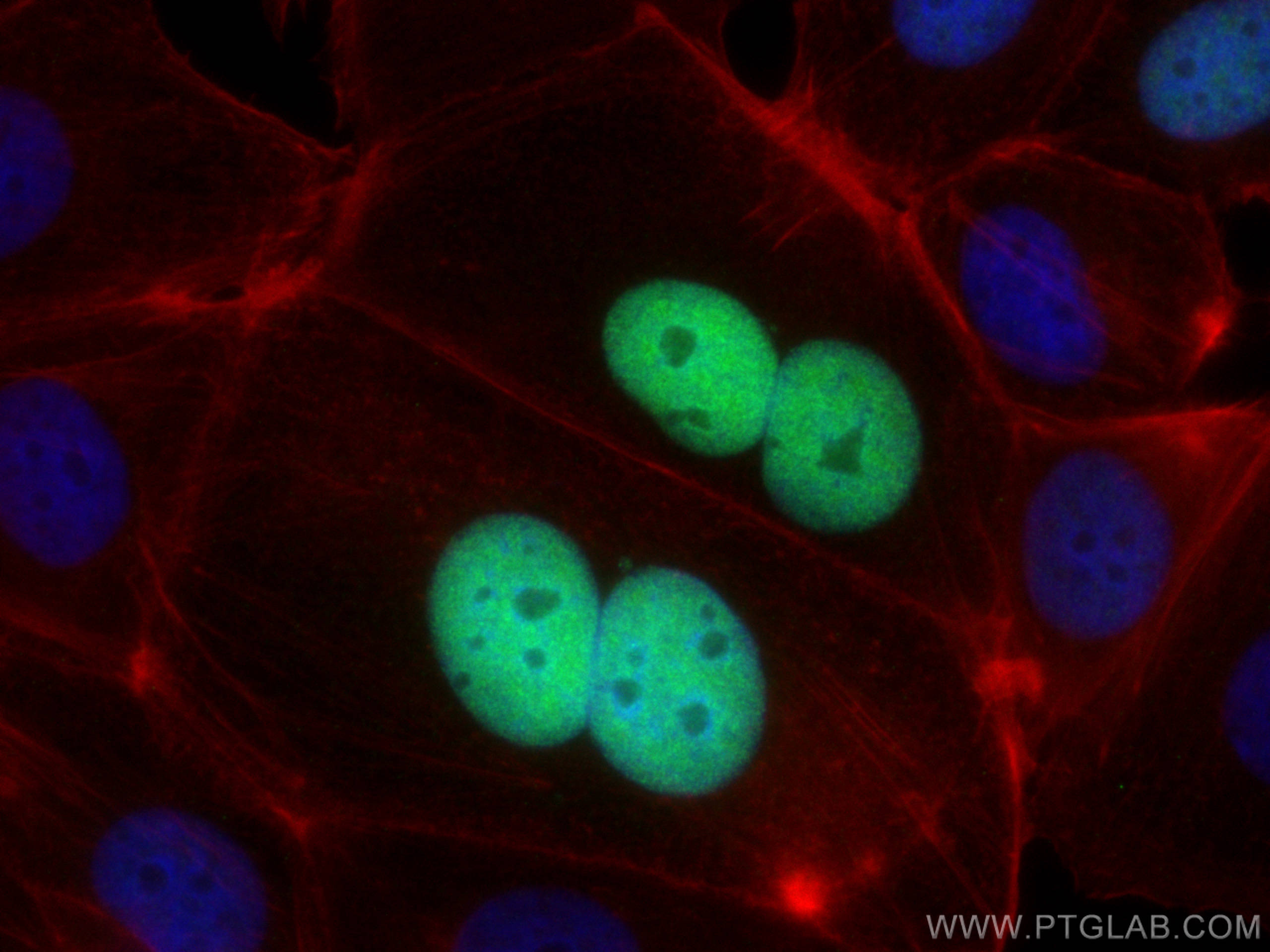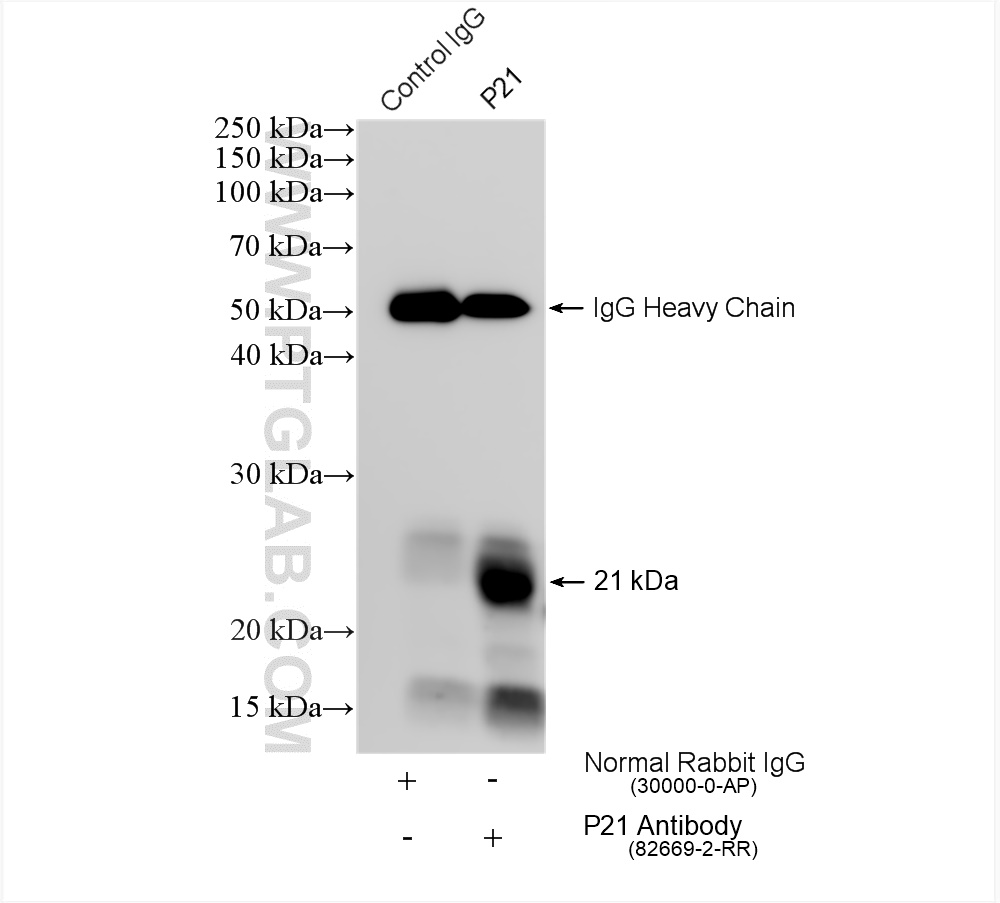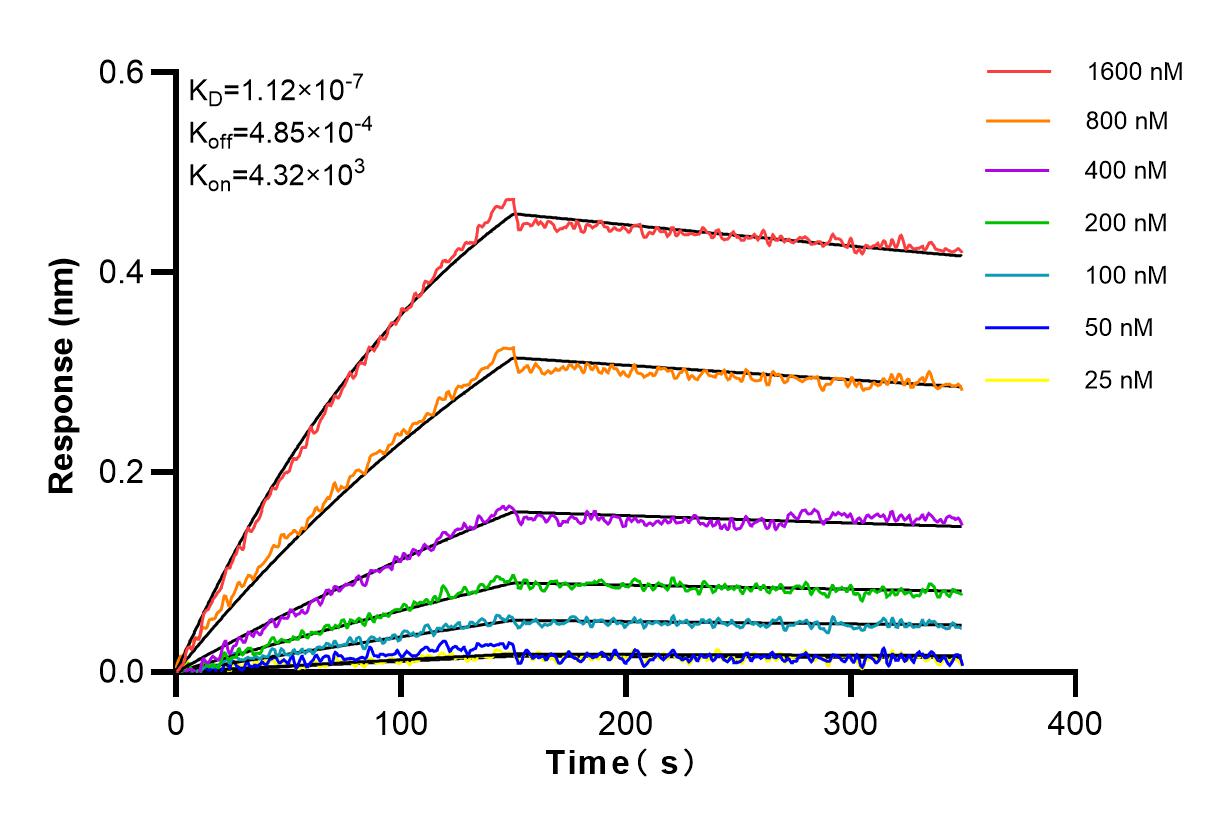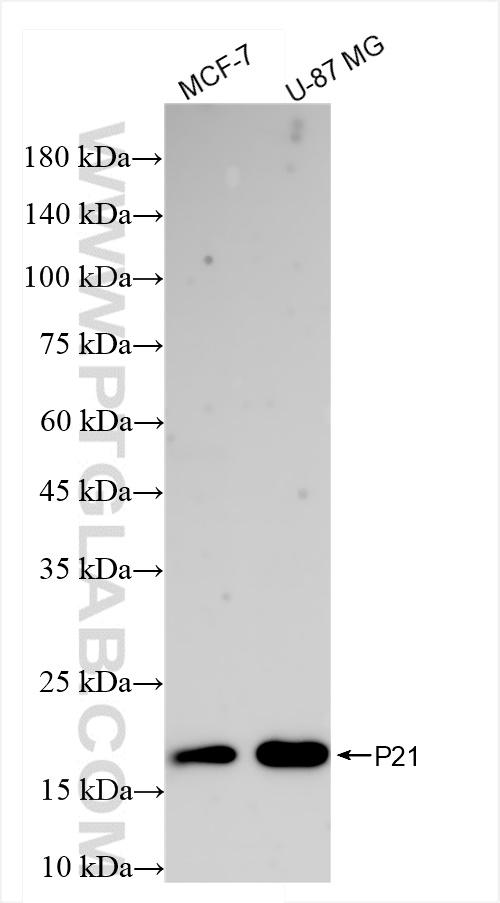验证数据展示
产品信息
82669-2-PBS targets P21 in WB, IF/ICC, IP, Indirect ELISA applications and shows reactivity with human samples.
| 经测试应用 | WB, IF/ICC, IP, Indirect ELISA Application Description |
| 经测试反应性 | human |
| 免疫原 | P21 fusion protein Ag0368 种属同源性预测 |
| 宿主/亚型 | Rabbit / IgG |
| 抗体类别 | Recombinant |
| 产品类型 | Antibody |
| 全称 | cyclin-dependent kinase inhibitor 1A (p21, Cip1) |
| 别名 | CDKN1A, P21;CDKN1A, 3N14, CDK-interacting protein 1, CIP1 |
| 计算分子量 | 18 kDa |
| 观测分子量 | 21 kDa |
| GenBank蛋白编号 | BC000275 |
| 基因名称 | p21 |
| Gene ID (NCBI) | 1026 |
| 偶联类型 | Unconjugated |
| 形式 | Liquid |
| 纯化方式 | Protein A purification |
| UNIPROT ID | P38936 |
| 储存缓冲液 | PBS only , pH 7.3 |
| 储存条件 | Store at -80°C. The product is shipped with ice packs. Upon receipt, store it immediately at -80°C |
背景介绍
CDKN1A (p21, CIP1, WAF1) is a cyclin-dependent kinase inhibitor. CDKN1A binds to and inhibits the activity of cyclin-CDK2 or -CDK4 complexes, and thus functions as a regulator of cell cycle progression at the G1 phase. The expression of CDKN1A is induced by wild-type but not mutant p53 protein, through which CDKN1A mediates the p53-dependent cell cycle G1 phase arrest in response to a variety of stress stimuli. CDKN1A can interact with proliferating cell nuclear antigen (PCNA), and plays a regulatory role in S phase DNA replication and DNA damage repair. CDKN1A was reported to be specifically cleaved by CASP3-like caspases, which thus leads to a dramatic activation of CDK2, and may be instrumental in the execution of apoptosis following caspase activation. Two alternatively spliced variants, which encode an identical protein, have been reported.
